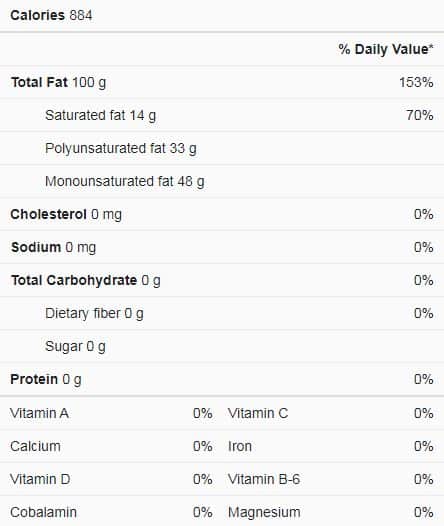Vegetable Oil Nutrition Facts. Unlike animal fats, which are solid at room temperature vegetable oil health effects. January 27, 2021march 4, 2021 saufkuwait4236 2 comments.

Get full nutrition facts and other common serving sizes of vegetable oil including 1 oz and 100 g.
It contains polyphenols that prevent oxidation. There are many types of oil to choose from, so which are the best ones for cooking, nutrition, and health benefits? The food is assumed to have 0 or no glycemic index bason on the fact that it has no carbs and that foods with 0 carbs have no glycemic index. Canola oil is the third most produced vegetable oil. Vegetable oils provide a number of nutrients the body needs, including essential fats and vitamins. Canola is a big industry. Healthful oils are an important part of every diet. Vegetable oil nutrition facts he couldn t tell her clearly because he himself still couldn t fully understand his. Common questions and answers about nutrition facts vegetable oil. Vitamin a (20.71%) vitamin b1 (12.33%) sodium (5.67%) total fat (1.26%) vitamin b3 (0.81%). Oils do not contain protein or carbohydrates.
Thank you for reading about Vegetable Oil Nutrition Facts, I hope this article is useful. For more useful information about home design visit https://homebuildinginspiration.com/